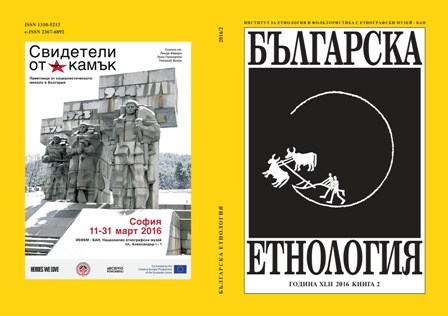
We kindly inform you that, as long as the subject affiliation of our 300.000+ articles is in progress, you might get unsufficient or no results on your third level or second level search. In this case, please broaden your search criteria.

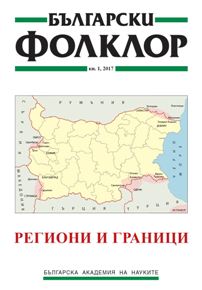
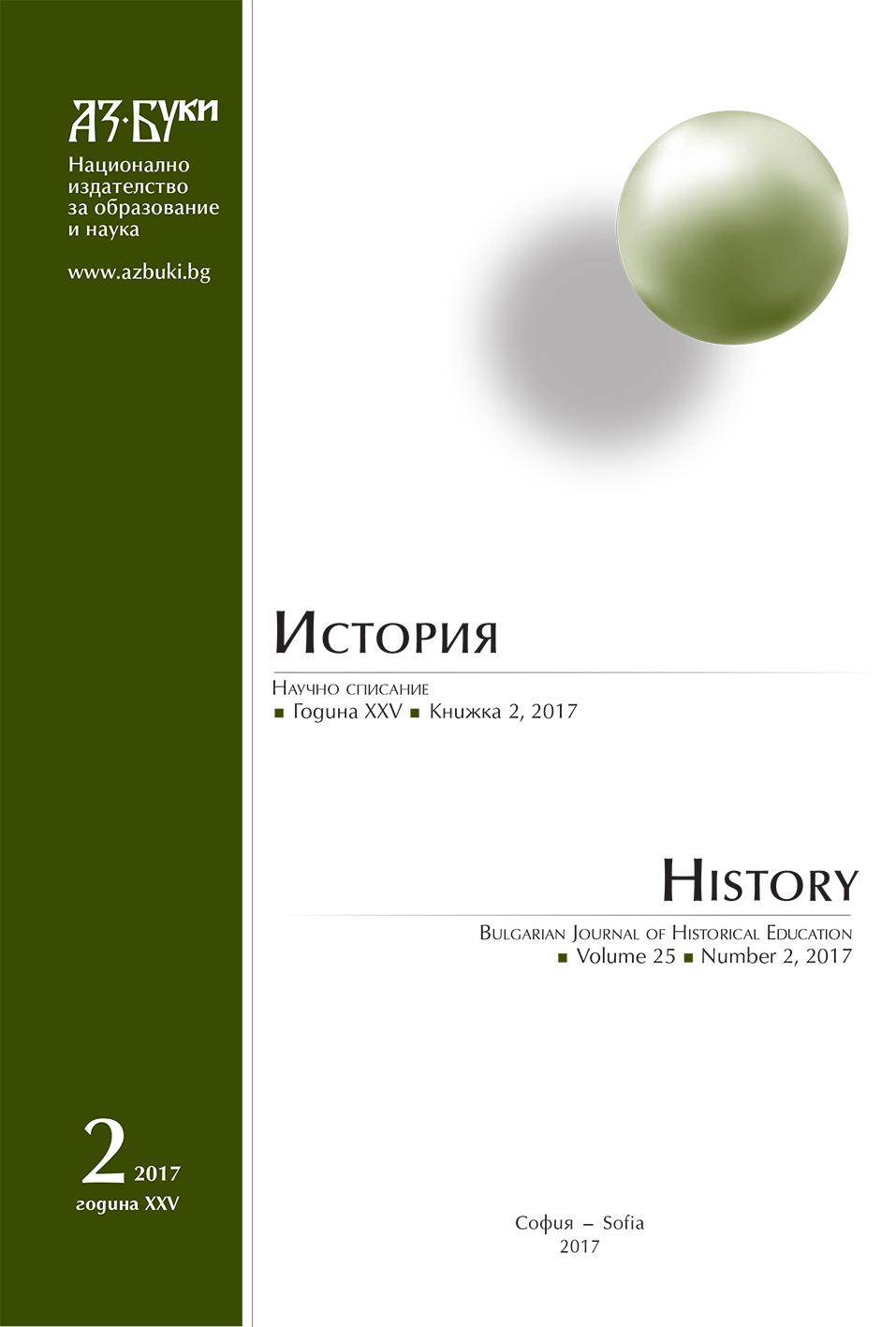
The Migration of Muslims to Western Europe attains significance after the World War II, because in this part of the old continent workers are badly needed for the development of industries of Western European countries. After 1945 till the beginning of XXI century there were five waves of Migration of Muslims to Western Europe. Although the politics of Western countries has some peculiarities towards the Muslims, the end results of this policy builds up parallel communities within the societies of these countries. These parallel communities hinder the integration of Muslims. At the religion the Muslims find a rallying point and the religion serves as a base for creation of Identity. Gradually the Muslims become a political factor because their number increased constantly. On surface arise the question about the integration or disintegration of Muslims. This question is at the center of the political or scientific discussion.
More...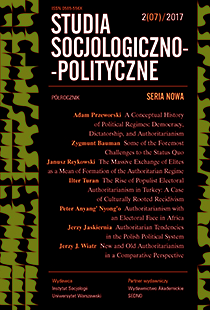
The trend in Turkey’s politics toward “electoral authoritarianism” is rooted in the long history of modernization. Tensions between traditional society and modernizing elites (with strong links to the military) resulted in the series of military coups in the 20th century and weak civilian regimes. The originality of the rule of the Justice and Development Party (AKP) since its coming to power in 2002 is that it has been able to consolidate the support of less privileged strata and to establish full control over the state. How durable is this system remains an open question.
More...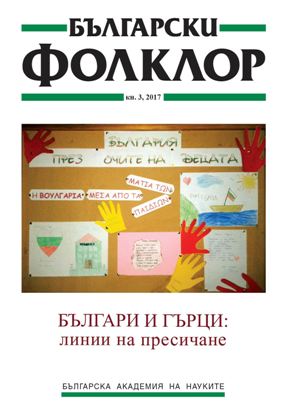
The Balkan Wars (1912–1913) triggered in Bulgaria and Greece unseen enthusiasm and hope for prosperity, as well as for the ‘liberation of our brothers living under yoke”. In the Bulgarian society the Balkan Wars have left a deep emotional trauma. But how does the Greek society evaluate these events? How durable are the Greek military victories and do they nurture new internal or external problems? How do the people in Greece evaluate their own contribution to the success in the Wars and how do they see themselves and their neighbors? What is the relationship between tradition and modernity and what is the place of humanism in this military clash? Is the image of the war undergoing a process of democratization?Seeking for the answers of these and other questions, we decided to present a Greek album from the period. The album is dedicated to the Balkan Wars and remains poorly known. We hope that the analysis of the illustrations in it will enable us to trace the attempt of the authors of the album to influence the audience and will thus allow to see the Balkan Wars through the eyes of the Greeks from the beginning of the 20th century.
More...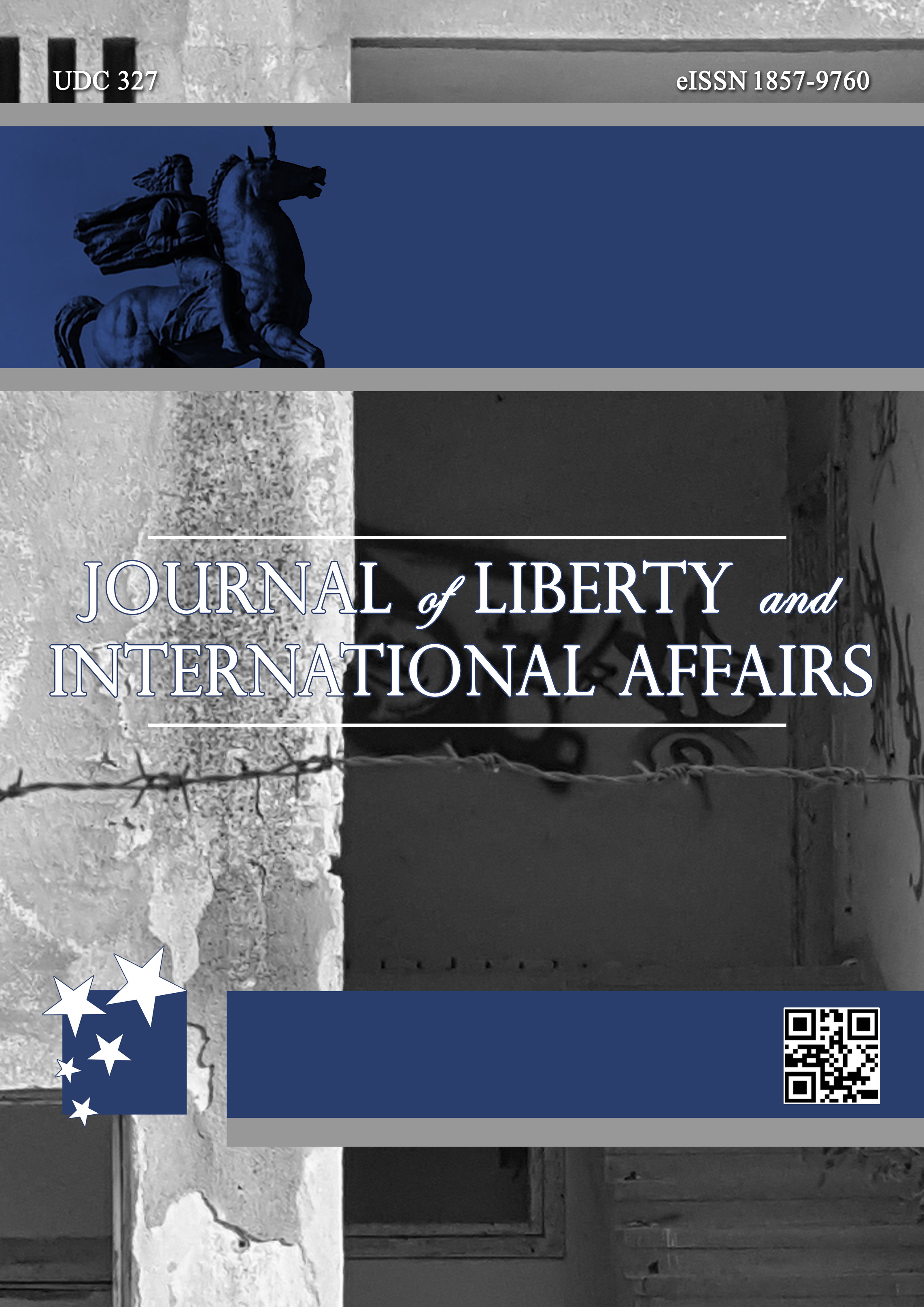
The Syrian civil war exacerbated sectarian divisions between the Alawite-ruled Syrian government and Syria’s Sunni population, straining also the relations between the Sunni majority and Alawite and Alevi minorities of the neighboring Turkey. The Alawites and Alevis of Turkey were predominantly supporting Syria’s president Bashar al-Asad, while the Turkish government greatly supported the Sunni insurgents of Syria. The paper aims at examining how Alawites and Alevis have influenced the relations between Turkey and Syria in the light of the Syrian civil war, the reasons behind the sympathy of Alevis for the Syrian government and the implications that Turkey’s Syria policy has had domestically. It finds that the Alevi / Alawite factor has had some restraining effects on Turkey’s antagonistic policy towards Syria. In the introductory part, the article touches upon the differences and the similarities between Alevis and Alawites, then it analyzes the developments in regards Turkey’s policy towards the Syrian crisis that were also reflected in Ankara’s domestic policy vis-à-vis its Alevi and Alawite minorities.
More...
Most international relations theorists regard the state as their primary actor, and the security concept is based too upon the society in its state form. However, the present phase of state existence, was only achieved after an extensive process of human societies' development in this direction, and the current state form, in its turn, is not definitive, as the state-organized societies are still in a continuous process of evolution, characterized by permanent change. In this paper we shall analyze how human societies have traversed the transition from the early stage, based on the itinerant exploitation of natural resources, which requires only an incipient organization,to the proto-state societies, and then, in a later process, we will continue our analysis until we find the model of state that we meet today.
More...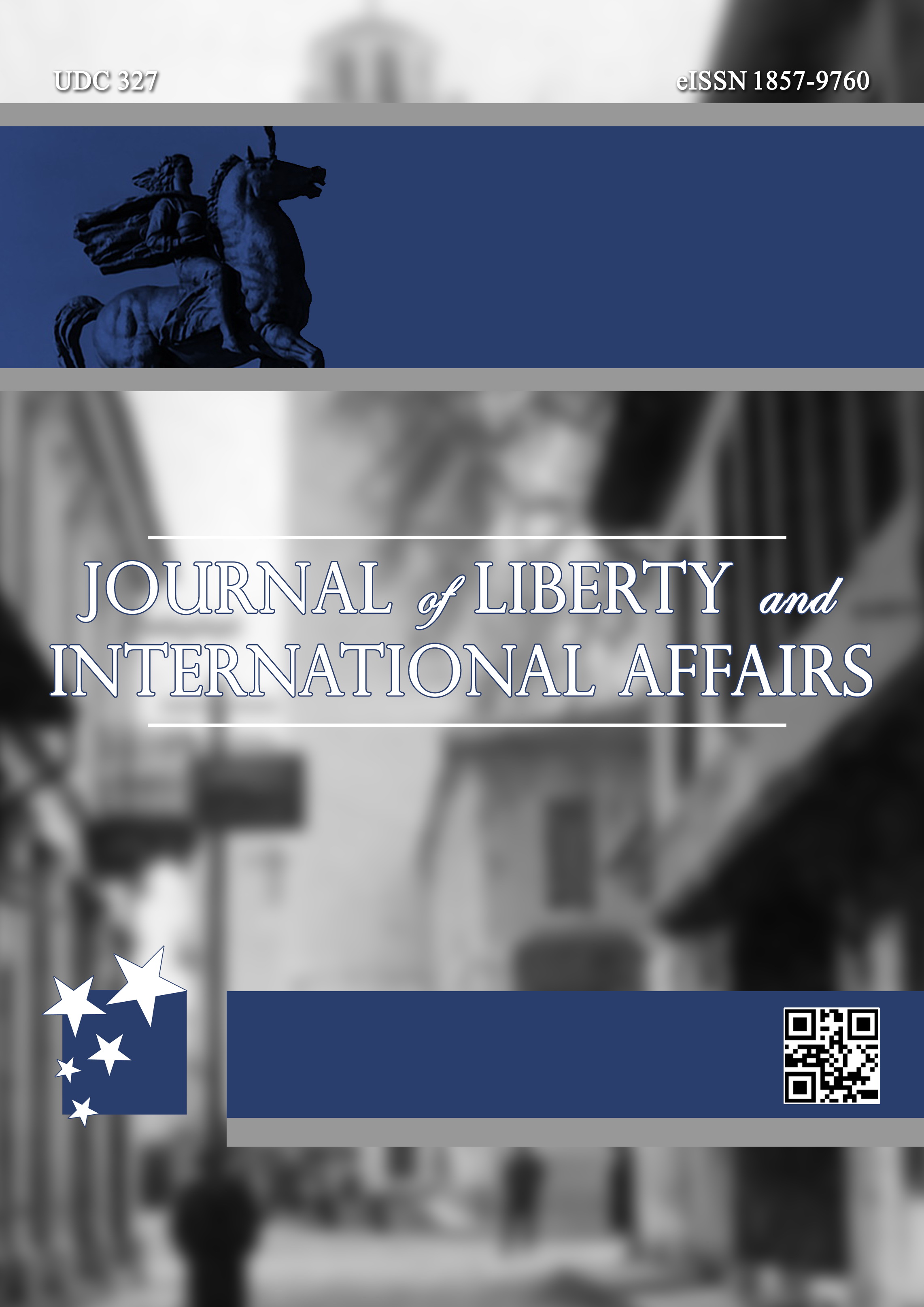
Nigeria is the most populous black nation in the world, member of the UN Security Council and largest economy of Africa. In addition to its globally acknowledged qualitative oil, it also has large deposits of mineral resources including tin, coal and gypsum, gold and lead. The country is not only engaged in a passionate competition with South Africa to attain the position of a continental superpower preparatory towards becoming a globally acknowledge giant but also comfortably playing a big-brother role among Africa nations. This paper uses documentary analysis to examine Nigeria’s social, economic and global potentials of fulfilling its dreams vis-a-vis the potentials of its competitor(s). The paper found out that Nigeria faces multidimensional challenges on its path towards continental leadership ranging from domestic problems of rising crime, incessant insurgency, dilapidated infrastructure, growing unemployment, over-reliance on dwindling oil income and leadership crises among others to intense competition from other strong African countries like South Africa, Egypt and Ethiopia. The paper concludes that the country’s goal of a regional superpower status is achievable but Nigeria must address its domestic challenges to win the race of attaining continental hegemony.
More...
The politics of godfatherism and regionalism has become a phenomenon in the political development of many nations Nigeria inclusive. The paper examined the determinants and impacts of politics of godson and regionalism in Yobe state. Indeed, the politics of godson or the elites have entered every hook and crannies of the state and have affected the political arrangement of the political system. The paper is qualitative in nature, data were generated from secondary sources where several related articles, newspapers, magazines, books were consulted etc. In explaining the topic under study, the researcher adopted Elite theory. This theory was propounded by Vilfredo Pareto in 1935, the postulation of the theory is that elites could only be replaced by another set of elites, meaning that the majority are unavoidably governed by the minority. The study found that the politics of godfatherism courses and affect the political development of Yobe state by restricting power in the hands of the few, in a specific geopolitical zone of the state. This has leads to inter-party and intra-party defections, decamping and conflicts among the party members. Therefore, the study recommends the adoption of the direct primary election in chosen candidate in all level of governance. INEC should also make a law that will discourage money politics and punish culpritinvolved in such an illegal act. To minimize the politics of Godfatherism, there is a need for political awareness campaigns on the effects of political godson on the political development of the state.
More...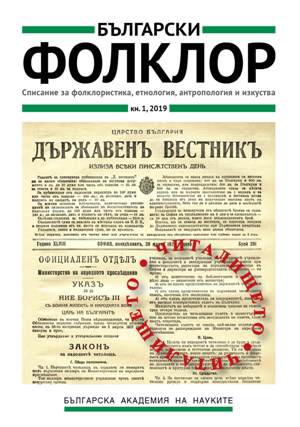
Asserting for decades on end its status of a focal point of the (social and) cultural life of (predominantly small) communities, the institution of the Bulgarian chitalishte in its more than a century existence has gradually but firmly accepted and realized its functions related to the transmission of the local culture. The text develops the discourse about the chitalishte as “memory” as well as a a “generator” of local culture, closely related to its institutional status based on community unification.
More...
The aim of the present study is to explain the role of the Bulgarian chitalishte institution in the process of safeguarding of intangible cultural heritage. The analysis focusses on the legal provisions and on the regulations concerning the chitalsihte (as cultural and educational institution, which is specific for Bulgaria) in the context of the Convention for the Safeguarding of the Intangible Cultural Heritage. The author also analyses the different aspects of the relations between this specific institution, the community and the cultural heritage in the context of the chitalishte (i.e. as museum artefacts in ethnographic collections, as written, photo, phono or video recordings in chitalishte archives, as traditional knowledge, skills and experience diachronically transmitted within the particular local communities).
More...
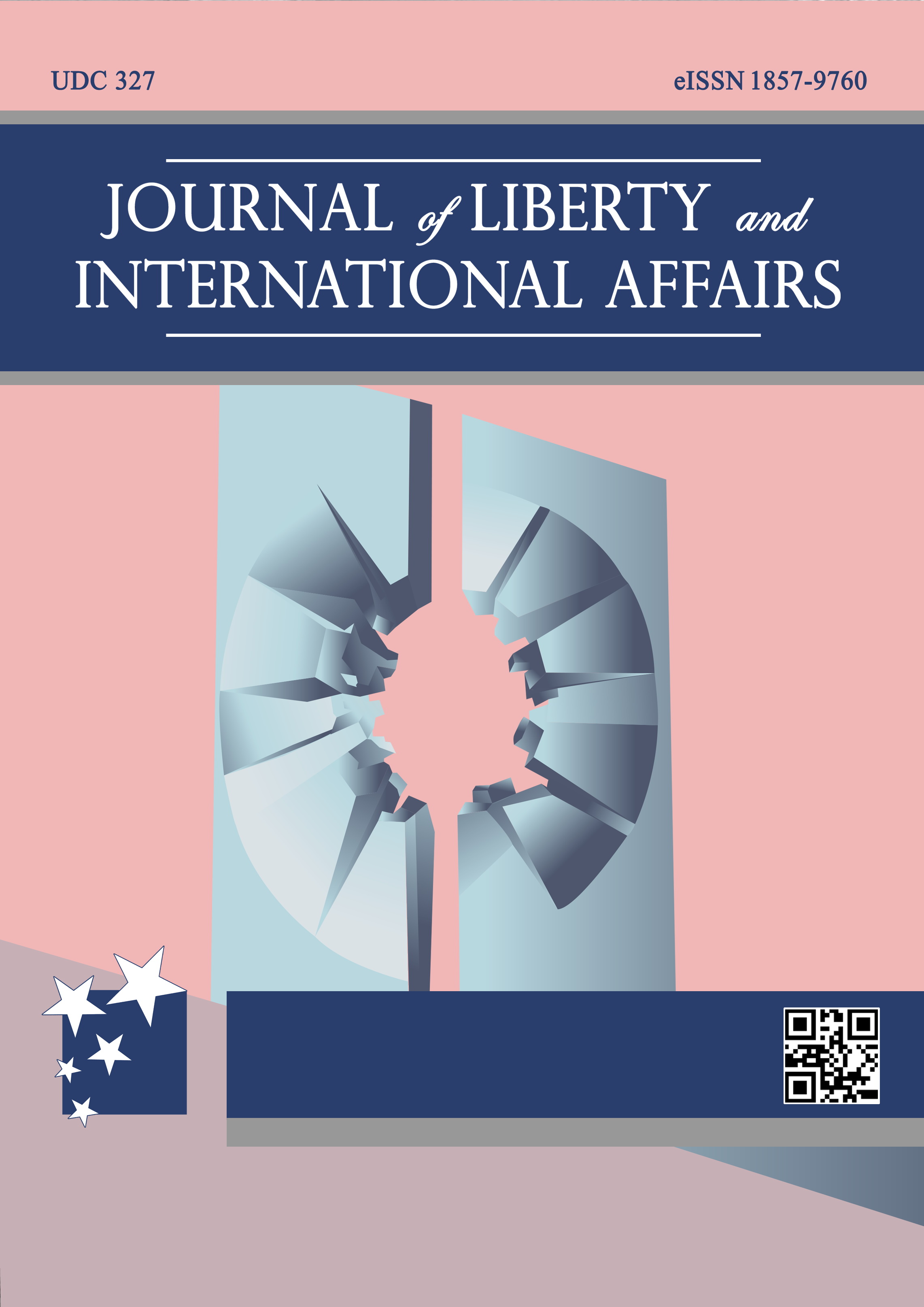
The influence of social networks is growing intensely. They do not only influence only certain aspects of our lives, but they also influence political participation and political culture. In recent years, this influence has been very notable. We have seen a change of policies as a result of pressure, a lot of significant political movements started via social networks. This paper concentrates on the influence of social networks on political participation and political culture. The paper tries to foresee the future implications and the intertwining of social networks and political culture and political participation. It also gives conclusions for the past, present and future implications and it gives a comparison between political participation before and after the rise of social networks. It also analyses the positive and negative implications that social network could have on political participation.
More...
This article analyzes the informative component of the Macedonian public administration as an imminent part of the accession process towards the European Union. The interaction of the public administration with the citizens, NGO's, media and other relevant "stakeholders" in the Macedonian society is an additional impetus for the acceleration and improvement of the integrative process. The main research methods which will be used in this paper are a descriptive method, content analysis method, and comparative method.
More...
Having the 2014-2017 timeframe, we aim to observe the long distance duel between the EU and the EEU, the interests of the two organizations being the most visible in the Republic of Moldova, a state with a soft balancing attitude which is at the same time an observer-member of the Eurasian Economic Union, and also a signatory-member of the Association Agreement with the EU. In order of capturing as faithfully as possible this remote match, we want to analyze the European normative power in relation to the Republic of Moldova by analyzing the main changes that Moldova's trade relations with Brussels and Moscow have suffered following the signing of the Association Agreement in 2014 and the institutional crystallization of the EEU in 2015, using data provided by the Moldavian National Bureau of Statistics and analyzing the official documents which laid the foundations for the recent relationship between the Republic of Moldova and the two organizations.
More...
The Republic of North Macedonia, a candidate country in the EU, is continuously subject to conditionality in relation to establishing a professional and effective public administration from the EU institutions and from the civil society. This paper employs the qualitative methodology of process tracing to find out whether the EU conditionality has managed to establish a merit-based civil service. The data are gathered and analyzed for a period of ten years while analyzing the legal and institutional structure of the civil service. The findings identify the factors that hampered or prolonged the implementation of reforms and they offer insights on the conditions necessary for the civil service reforms to take place.
More...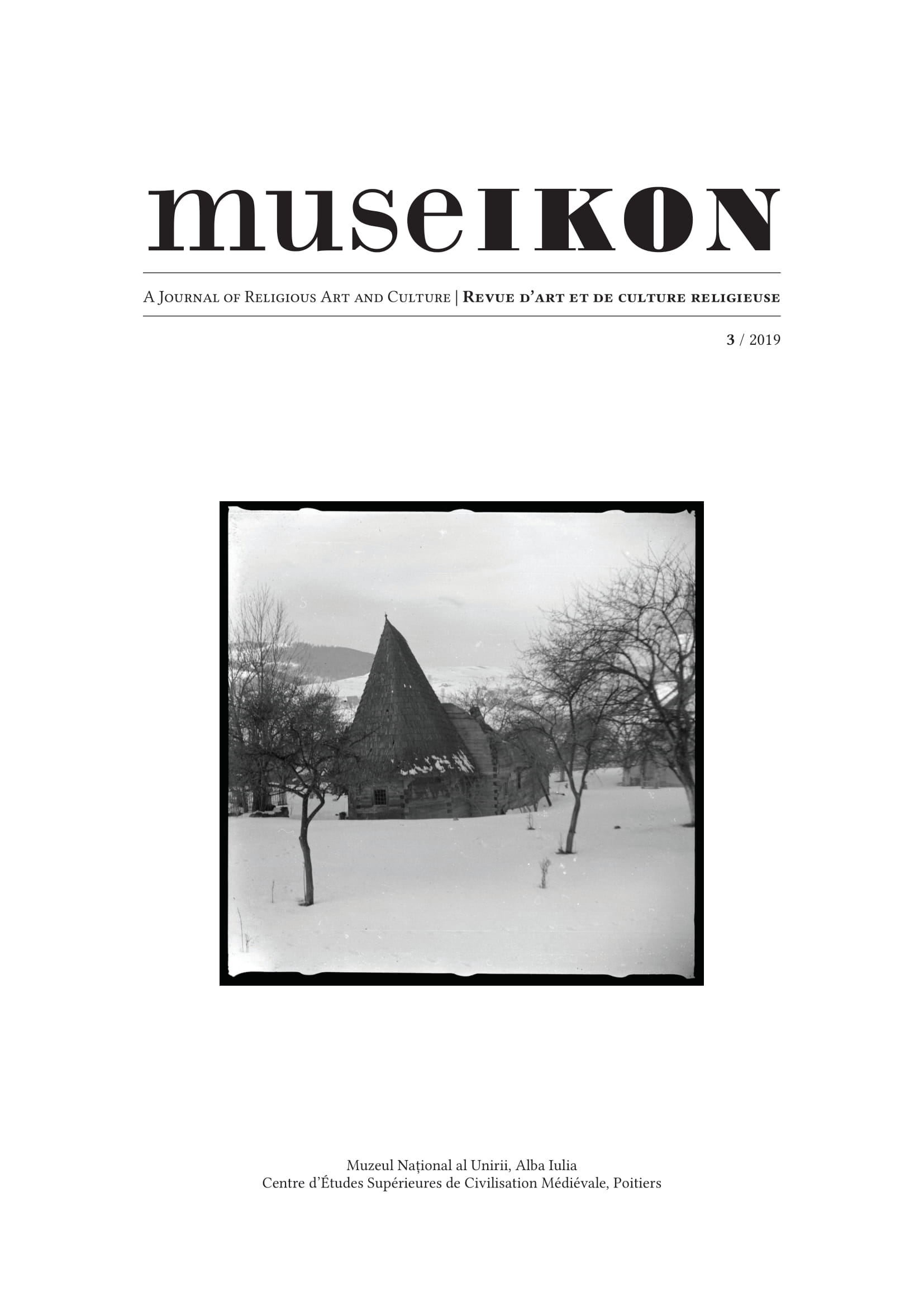
L’effondrement des États communistes de l’Europe de l’Est a mis en lumière des histoires d’héroïsmependant la répression et fait parler d’oppression, de survie et de dignité. Cependant, les tendances historiogra-phiques récentes cherchent désormais à comprendre les aspects systémiques des quarante-cinq années de Régimecommuniste en Roumanie. Les études culturelles et sociales, l’histoire comparée, la et l’histoire orale, entre autres,interprètent et redimensionnent nos conceptions sur le mode de vie pendant le communisme. En partant d’uneapproche post-révisionniste, s’appuyant sur une analyse du discours et sur la sémantique, la présente étude sepropose d’interpréter quelques extraits des archives de la police politique (Securitate) concernant l’histoire dugroupe d’intellectuels et de clercs connu sous le nom de Rugul aprins (Buisson ardent), qui ont été cibles de la ré-pression communiste et incarcérés ensemble pour agissements contre l’ordre social. Puisque leurs préoccupations spirituelles et leur philosophie culturelle témoignaient pleinement d’une attitude anti-communiste et d’une cri-tique du régime socialiste, ils sont devenus l’objet d’un suivi informatif de la Securitate, puis inculpés lors d’un procès mené pendant la seconde vague répressive du régime, en 1958. La présente recherche suit la trame narra-tive et les thèmes du discours de la Securitate, en essayant en même temps de proposer une interprétation de la façon dont les institutions répressives se rapportaient face à l’idée de religiosité et de ‘mysticisme’.
More...
This paper presents a constructivist take on soft power, by analyzing the contextual factors which influence Chinese investments (COFDI) to the EU as a relevant soft power resource. The contextual analysis shows which constraining and stimulating (internal and external) factors condition COFDI in leveraging soft power for China. Additionally, the article provides solutions for soft power optimization, since soft power resources aim to entice and foster cooperative relations toward a ‘win-win’ behavior. The issues presented here have profound implications for future studies on soft power and the political economy of Chinese investments in the EU.
More...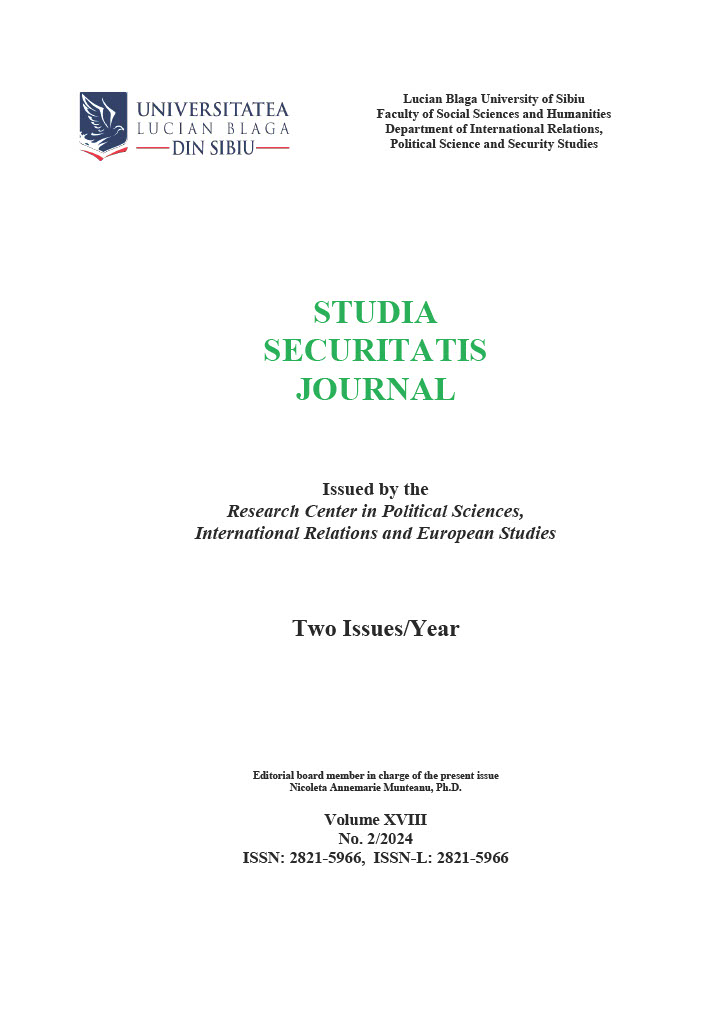
This paper examines strategic communication's important role in countering hybrid threats through early detection, real-time response, and collaboration among government, civil society, and technology sectors. Hybrid threats, such as foreign information interference, disinformation, cyberattacks, and political influence campaigns, present challenges to national security, particularly in the digital age. By fostering societal resilience and enhancing public trust in institutions, strategic communication frameworks are essential to safeguarding national interests. This paper explores how strategic communication frameworks can detect, respond to, and mitigate the impacts of hybrid threats, rapid and coordinated responses. Strategic communication can prevent the spread of disinformation, help build national resilience. By creating collaborative networks and using digital technologies, strategic communication protects national security and underscores their role in safeguarding national resilience. It aligns messaging across agencies, reinforcing government credibility during crises and fostering societal resilience through transparent, accurate information. By engaging with diverse audiences, StratCom adapts messages to influence positive public behaviors and build social cohesion. Additionally, it supports national interests by unifying government and societal efforts under clear objectives, while protecting information channels to secure communication. This proactive, coordinated approach strengthens democratic values and national security against hybrid threats.
More...
With the rapid digitalization of government functions, there is an emerging need for strict legal frameworks that will protect the personal data of citizens and guarantee their rights under the GDPR, adapting these provisions into the national legislative system. This legal research discusses how the need for transparency in public administration is weighed against the requirement for the confidentiality of data and how such dynamics impact human security and civil liberties. Considering emerging technologies such as blockchain, artificial intelligence, and automated decision-making systems, the legislative measures at present within the European Union need to be reassessed. This reassessment provides the principles of data minimization, and the legal responsibilities of both the data controller and processor in the public sector, emphasizing strongly the principles of accountability and integrity of data. The paper presented tries to provide an integral vision of data protection and human security in the digital transformation of public administration, a combination of legal and ethical considerations.
More...